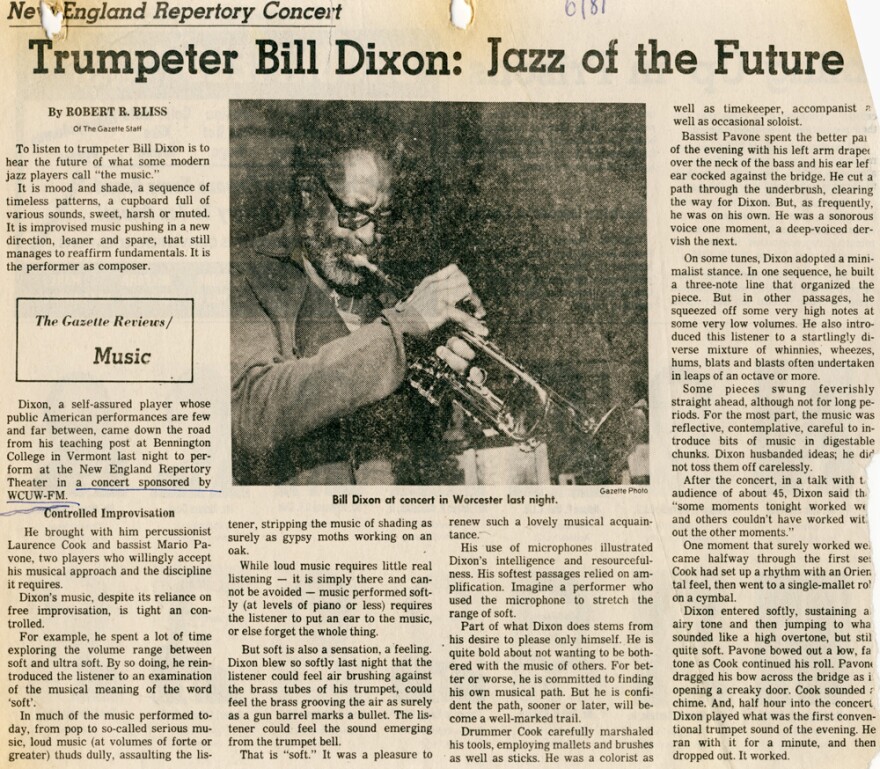It’s rare that avant-garde music gets time in the spotlight these days. WRTI’s Maureen Malloy gives you some history on the free jazz movement, and a glimpse into its future. Check out the October Revolution of Jazz and Contemporary Music organized by Ars Nova Workshop and Fringe Arts, from October 4th to 7th.
Radio script:
October 1st to the 4th, 1964, was a big week, even a turning point, for avant-garde jazz.
Avant-garde jazz came to be in the mid 1950s, as some artists began to yearn for spontaneity rather than the conventional. Composer, artist, and multi-instrumentalist Bill Dixon was one of those artists, and in early October of 1964 he created and directed an event that would make avant-garde, or free jazz, more accessible.
The October Revolution of Jazz was a four-day festival at the Cellar Café in NYC. It featured greats like Sun Ra, Cecil Taylor and Andrew Hill, and included midnight panel discussions with prominent artists and producers.
It’s safe to say that October 1st to the 4th, 1964 was a big week, even a turning point, for the avant-garde.

Mark Christman, director of Ars Nova Workshop, an institution that has championed free jazz for over 15 years, agrees.
Mark Christman: There were lots of turning points, I think, around this time, and I think this was a special case. The Jazz Composers Guild came out of this festival, and I think it was a real moment where a collection of artists and ensembles were brought together and, kind of curated. And, it suggested that they were part of an important movement.
A movement important enough that the music and organizations the festival created are still alive and well. So much so, that Ars Nova Workshop, along with FringeArts is reviving the Revolution on an annual basis.
MC: It’s a nod to that moment, that movement. It really reflects our interest in presenting, what we believe, is a constantly changing art form.
Let’s see what progression comes from the new October Revolution.

